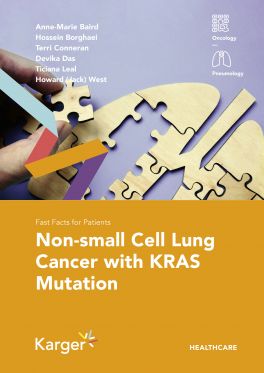Description
Non-small cell lung cancer (NSCLC) is one of two main types of lung cancer. Some lung cancers spread to other parts of the body before they are diagnosed. A cancer that has spread is called ‘metastatic’. New lung cancer treatments are being developed that directly target the gene mutations that control how cancers grow and spread. The most important gene mutations in cancer are called ‘driver mutations’. In NSCLC, this includes KRAS mutations, which can be used as targets for treatment. There are new treatments designed for lung cancers with a KRAS mutation that are already available. And more are being developed. Treatments in development are tested in clinical trials. There are several different phases of clinical trials that people with cancer can take part in. This booklet aims to help patients with NSCLC understand their options so that they can talk to their doctors, nurses, and medical team about their cancer and its treatment. Table of Contents: • What is non-small cell lung cancer? • How can lung cancer develop? • What is metastatic NSCLC? • More about genes and cancer • Oncogenes and cancer • Driver mutations and biomarkers • How your doctor knows your cancer is KRAS-positive • More about KRAS • What does having a KRAS-positive cancer mean for me? • Talking to your doctor about your treatment • About clinical trials and research • Finding further information and support

